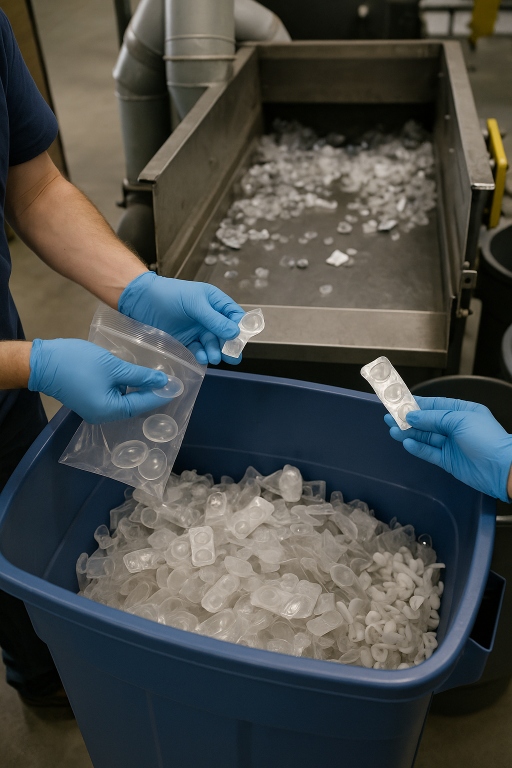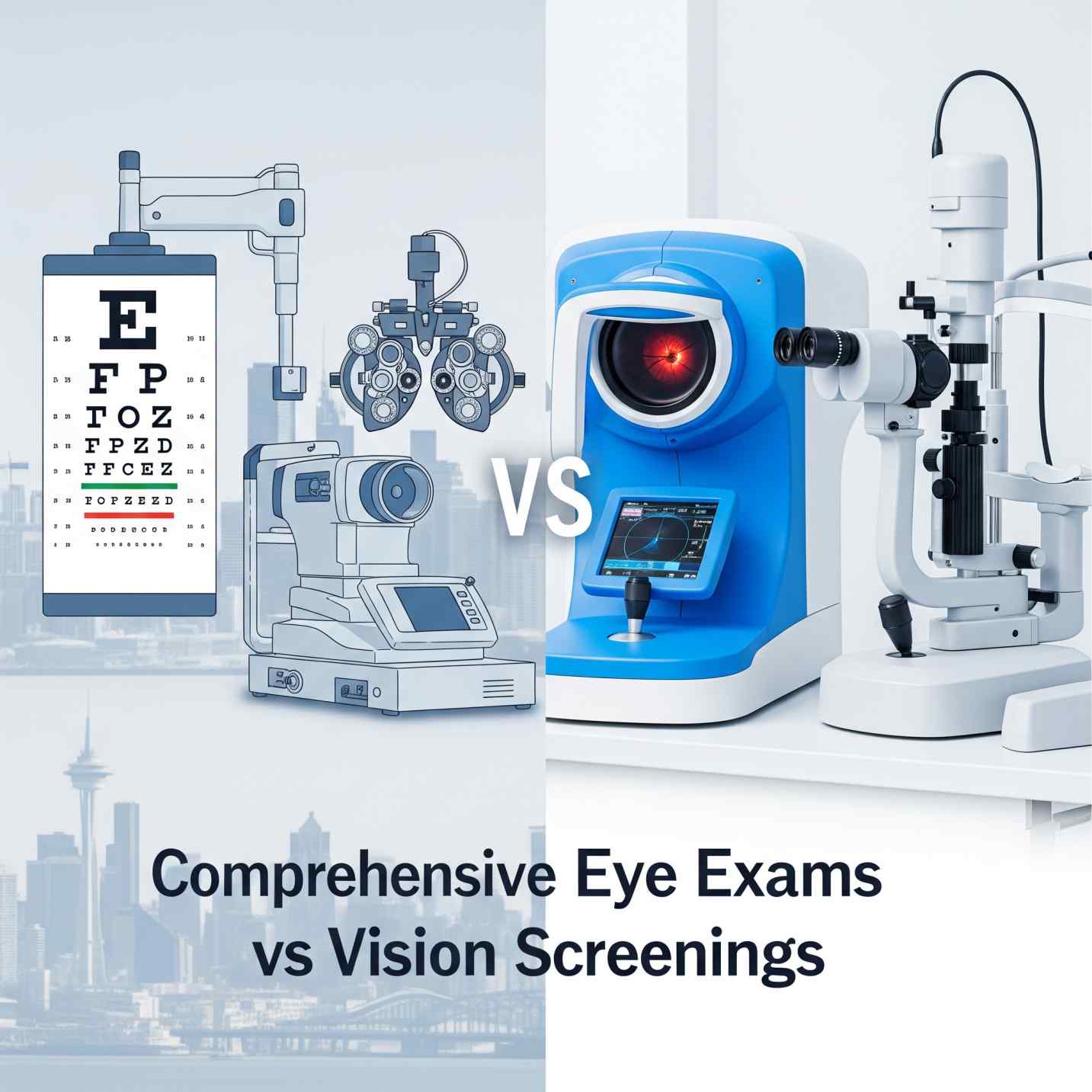Seattle Contact Lens Recycling: What You Need to Know
Are your contact lenses polluting Puget Sound? Discover how contact lens waste in Seattle harms marine life—and what you can do to recycle smarter and protect local ecosystems.
The Environmental Impact of Contact Lens Waste in Seattle
Every year, over 20 million contact lenses end up in U.S. landfills, and Seattle’s recycling systems struggle to process small plastics like blister packs. When improperly disposed of, these materials break down into microplastics that threaten Puget Sound’s marine life.
How This Affects Seattle:
- Puget Sound Pollution: Microplastics from lenses and packaging harm salmon habitats and local waterways.
- Landfill Overload: Seattle’s Cedar Hills Landfill receives 1.2 million tons of waste annually—contact lens waste adds unnecessary volume.
- Local Recycling Gaps: Standard curbside bins in King County can’t sort tiny plastics, forcing residents to seek alternatives like Cannon EyeCare’s TerraCycle program.
How Contact Lens Recycling Works
Drop Off Your Lenses & Packaging at Cannon EyeCare:
- Accepted Items: Foils, plastic blister packs, and used contact lenses (separated from each other).
- Locations: Conveniently drop off at our University Village or Pike Place office in Seattle.
- Not Accepted: Cardboard boxes & paper packaging (recycle these at home).
Pro Tip for Eco-Conscious Seattleites:
- Store foils, blister packs, and lenses in separate bags at home.
- Bring them in once full—no need to clean the lenses!
What Happens After Drop-Off?
-
Our Seattle clinics ship full bins to TerraCycle.
-
Materials are sorted, melted down, and repurposed into new products.
-
Bausch + Lomb donates $1 to Optometry Giving Sight for every 10 lbs recycled—helping both the environment and global eye care!
Monthly Replacement vs. Daily Disposable Contact Lenses
At our Seattle practice, we carefully guide patients through the pros and cons of daily disposable contacts versus monthly replacement lenses. Here’s what you should consider:
Advantages of Daily Disposable Lenses:
- Convenience: No cleaning required, and no need to track left vs. right lenses.
- Freshness & Safety: Each day starts with a sterile lens, reducing irritation and infection risks.
- No Cleaning Solutions Needed (unless a lens is dropped)—simpler and often better for eye health.
Disadvantages of Daily Disposables:
- Higher Annual Cost (if worn more than 3-4 times per week compared to monthlies).
- More Packaging Waste—through our Seattle recycling program helps mitigate this.
- Limited Availability: Some prescriptions may not yet be offered in daily options (though selection is improving).
Important Disposal Reminder
Never flush contacts down the toilet or sink—this contributes to microplastic pollution in our oceans. Even if they don’t clog your drain, they end up harming marine ecosystems. Always dispose of used lenses in the trash or, better yet, recycle them through our Seattle contact lens recycling program.
Running a Green Medical Practice in Seattle
Sustainability is a priority at our clinic. Dr. Mark Cannon bikes to work daily to reduce our carbon footprint, and we actively minimize waste by:
- Reusing materials until fully spent.
- Composting & Recycling: Unlike most Seattle medical offices, we compost (including shredded paper) and haul waste to residential bins for proper sorting.
Other Ways to Make Your Eye Care Routine Eco-Friendly in Seattle
Beyond recycling lenses, Seattle residents can adopt sustainable practices:
Sustainable Contact Lens Choices:
- Opt for monthly lenses if you wear contacts 3+ days weekly (reduces packaging waste).
- Ask our Seattle optometrists about BIOTRUE® or PuriLens® solutions—both available locally with recyclable bottles.
Reduce Packaging Waste:
- Recycle eyeglasses and cases at Lion’s Club bins (located in Seattle-area libraries and community centers).
- Choose brands like Acuvue® Oasys, which use 30% less plastic in blister packs.
Support Local Green Initiatives:
- Participate in Seattle Public Utilities’ Recycle Right workshops to master home sorting.
- Pair your lens recycling with Cannon EyeCare’s co-management of cataract/LASIK surgeries—minimizing travel and carbon footprint.
FAQs
-
Where can I recycle contact lenses in Seattle?
You can recycle contact lenses, blister packs, and foils at Cannon EyeCare’s Seattle locations (University Village or Pike Place). This free program, partnered with TerraCycle, keeps waste out of King County landfills and protects Puget Sound.
-
How does recycling contact lenses help Seattle’s environment?
-
Why choose daily vs. monthly lenses
-
What happens to recycled contact lenses
-
How can I recycle my contact lenses and packaging at home?
-
Why shouldn’t I flush my used contact lenses down the drain?
-
Where can I drop off used contact lenses for recycling?
-
What materials from contact lens packaging are recyclable?
-
How do contact lens recycling programs work?
-
Can I donate unused contact lenses instead of recycling?
-
How can I reduce contact lens waste sustainably?
-
What happens to contact lenses after recycling?
-
Can I recycle contact lens solution bottles with regular plastics?
-
Are all contact lens brands accepted in recycling programs?
-
How do I prepare contact lenses for recycling?
-
Is there a cost to recycle contact lenses?


